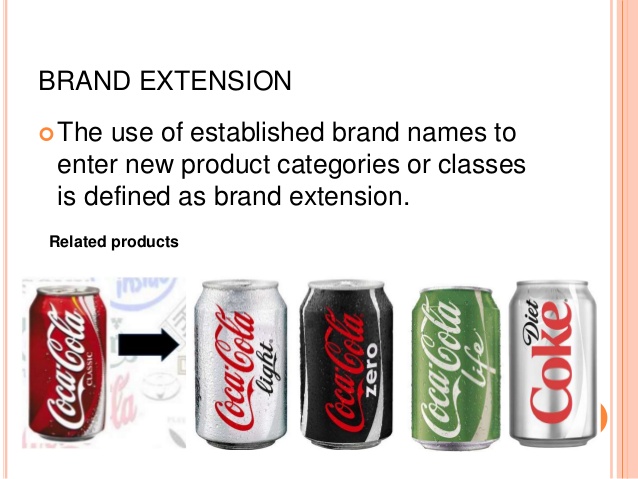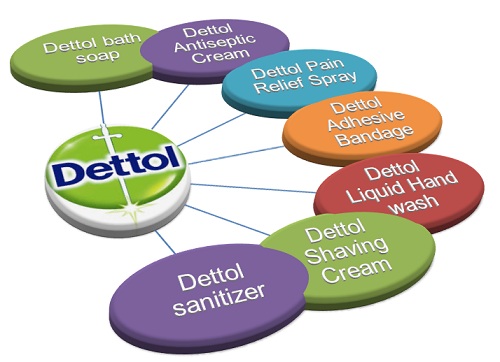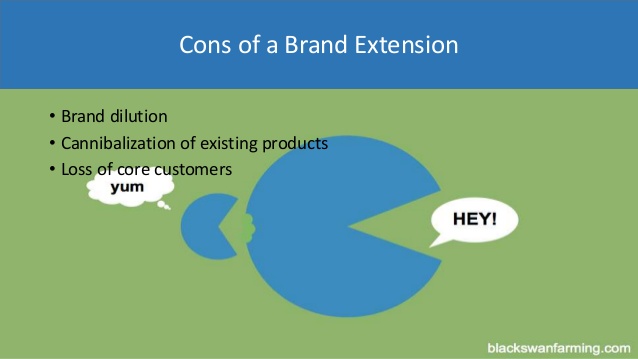Brand Extensions
Many firms leverage their most valuable asset by introducing a host of new products under their strongest brand names. Most new products are in fact brand extensions—typically 80 percent to 90 percent in any one year. Moreover, many of the most successful new products, as rated by various sources, are brand extensions.

Advantages of Brand Extensions
Two main advantages of brand extensions are that they can facilitate new-product acceptance and provide positive feedback to the parent brand and company.
Consumers form expectations about a new product based on what they know about the parent brand and the extent to which they feel this information is relevant. By setting up positive expectations, extensions reduce risk.
It also may be easier to convince retailers to stock and promote a brand extension because of anticipated increased customer demand. An introductory campaign for an extension doesn’t need to create awareness of both the brand and the new product; it can concentrate on the new product itself.
Extensions can reduce launch costs, important given that establishing a major new brand name for a consumer packaged good in the U.S. marketplace can cost more than $100 million!
Extensions also can avoid the difficulty—and expense—of coming up with a new name and allow for packaging and labeling efficiencies. With a portfolio of brand variants within a product category, consumers who want a change can switch to a different product type without having to leave the brand family.
A second advantage is that brand extensions can provide feedback benefits. They can help to clarify the meaning of a brand and its core values or improve consumer loyalty to the company behind the extension.
Also, they can renew interest and liking for the brand and benefit the parent brand by expanding market coverage. In fact, a successful category extension may not only reinforce the parent brand and open up a new market but also facilitate even more new category extensions

Disadvantages of Brand Extensions
On the downside, line extensions may cause the brand name to be less strongly identified with any one product. Brand dilution occurs when consumers no longer associate a brand with a specific or highly similar set of products and start thinking less of the brand.
If a firm launches extensions consumers deem inappropriate, they may question the integrity of the brand or become confused or even frustrated: Which version of the product is the “right one” for them?

Do they know the brand as well as they thought they did? Retailers reject many new products and brands because they don’t have the shelf or display space for them. And the firm itself may become overwhelmed. One more disadvantage is that the firm forgoes the chance to create a new brand with its own unique image and equity.
The worst possible scenario is for an extension not only to fail, but to harm the parent brand in the process. Fortunately, such events are rare. “Marketing failures,” in which too few consumers are attracted to a brand, are typically much less damaging than “product failures,” in which the brand fundamentally fails to live up to its promise.
Product failures dilute brand equity only when the extension is seen as very similar to the parent brand. Even if sales of a brand extension meet high targets, the revenue may be coming from consumers switching from existing parent-brand offerings—in effect cannibalizing the parent brand. Yet intrabrand shifts in sales may not be undesirable if they’re a form of preemptive cannibalization.
Success Characteristics
Marketers must judge each potential brand extension by how effectively it leverages existing brand equity from the parent brand as well as how effectively, in turn, it contributes to the parent brand’s equity. One major mistake in evaluating extension opportunities is failing to take all consumers’ brand knowledge structures into account and focusing instead on one or a few brand associations as a potential basis of fit.
